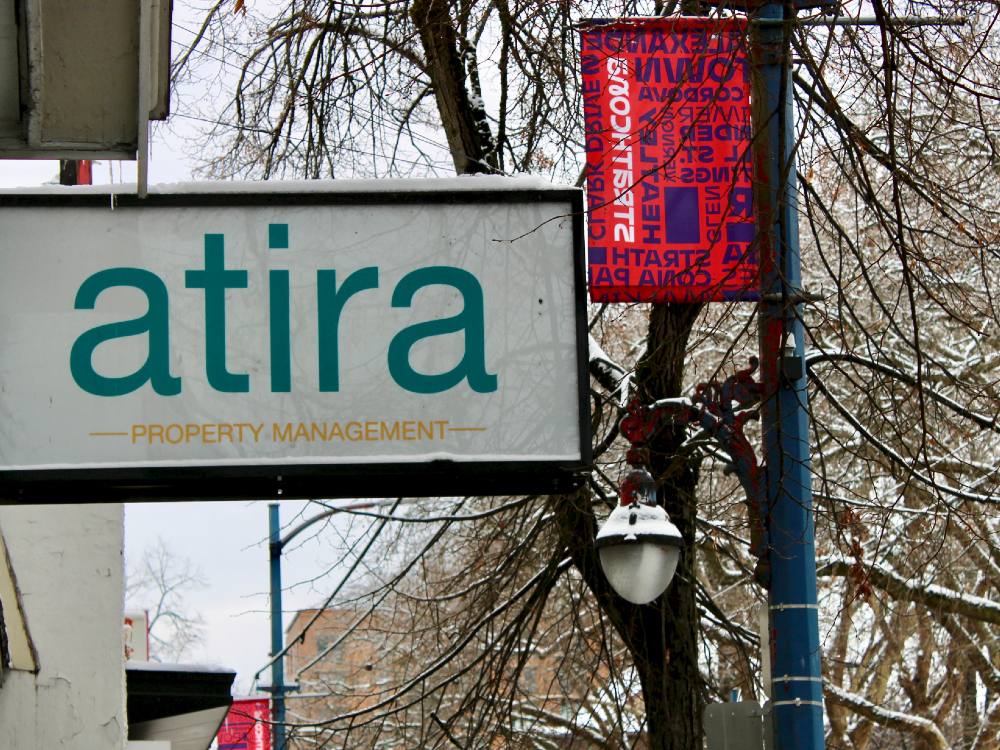B.C.’s largest provider of supportive housing has replaced several board members and pledged to improve governance following a conflict of interest scandal that led to the departure of its long-time CEO.
Janice Abbott left Atira Women’s Resource Society in May, following a damning government report that found Abbott’s husband, Shayne Ramsay, had repeatedly pushed for housing contracts and projects to be given to his wife’s company while he was CEO of BC Housing. BC Housing is a Crown corporation that builds and runs housing, but also funds non-profit housing providers.
Ramsay’s activity violated BC Housing’s conflict of interest rules and Atira became the highest funded and largest provider of supportive housing in the province.
The Tyee attempted to contact Abbott and Ramsay to provide comment, but did not hear back by press time.
The new members of Atira’s board are Jessie Adcock, Hilary Marks, Anne Kinvig, Margaret Lucas, Morgane Oger, Sienna Richardson, Jama Temir and Sarah Wang.
Elva Kim, the board chair who initially wrote a defiant letter to BC Housing’s board chair defending Abbott, remains the chair. Amy McCallion, Taha Rezvan, Miriam Sobrino and Michelle Yung are also staying on the 13-member board.
Starting in 2021, The Tyee began reporting on serious safety complaints from workers and residents — reporting that eventually included concerns about conflict of interest violations and inadequate oversight from both the Atira and BC Housing boards.
In April 2022, one Atira-operated building burned down, killing two vulnerable tenants.
Atira continues to be under scrutiny: an operational review ordered by the province and conducted by accounting firm KPMG is still underway. And a coroner’s inquest into the deaths of the tenants — Mary Ann Garlow and Dennis Guay — is scheduled to start Jan. 22, 2024.
A governance report released by Atira Thursday found the non-profit’s board of directors provided inadequate oversight and few checks on the way Abbott ran Atira. The report refers to the phenomenon of “founder’s syndrome,” when an organization is overly reliant on a charismatic founder or CEO.
That “founder’s syndrome” dynamic led to Abbott resisting challenges from her own board, according to the report.
“Breaches in policies and procedures were overlooked if they actually came to light,” the report says, noting that Abbott set the agendas for board meetings, recruited board members, led board meetings and “advised the board on what had occurred after the fact.”
Abbott had been the CEO of Atira since 1992 when it was primarily focused on running women’s shelters. Starting in the early 2000s, the organization became focused on expanding its portfolio of housing, developing new buildings and starting a for-profit property management arm. Abbott married Ramsay, who had been CEO of BC Housing since 2000, in 2010.
The report says that although the non-profit was growing at a rapid pace, the board was not providing any strategic planning and board discussions tended to be “rear-view in nature.” The report characterizes Atira’s growth as “opportunistic and entirely led by the CEO” and says many board meeting were described as “‘free form’ and rushed, with 90 per cent of the content consisting of the CEO talking.”
“As a result, the society grew beyond its ability to scale and got involved in many projects without clarity on their financial viability,” the report says.
The report also highlights that Abbott and the board members were passionate about the organization’s mission of providing safe housing to vulnerable women.
But, the report goes on to say, the board was not providing adequate financial oversight and was not maintaining records properly.
The report’s assessment of the governance problems echo concerns raised by a previous report in 2018. The 2018 report, commissioned by BC Housing senior executives at the time, also found that Atira’s board was not providing adequate oversight.
Based on that 2018 report, BC Housing’s executive team recommended new projects be frozen for Atira until significant financial problems could be sorted out. But that decision was overruled by BC Housing’s board chair at the time, Cassie Doyle, after a meeting with Atira’s board chair.
BC Housing’s board was suddenly replaced in July 2022, shortly before Ramsay announced he would resign. B.C.’s premier, David Eby, later told the legislature in May that the board was replaced because they refused to fire or place Ramsay on leave while the investigation into the conflict of interest allegations was ongoing.
Atira says it has already put in place changes to improve governance and plans to implement all of the recommendations made in the governance report, which was conducted by McLaughlin & Associates.
Happy holidays, readers. Our comment threads will be closed until Jan. 2 to give our moderators a much-deserved break. See you in 2024! ![]()
Read more: Rights + Justice, Housing
















